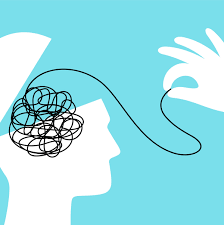
In today’s fast-paced world, achieving overall wellness requires a balance between physical and mental health. While we often focus on fitness, nutrition, and staying active, the mind is just as important in maintaining a well-rounded sense of wellness. The connection between mind and body is strong, and neglecting one can impact he other.
The mind and body are deeply interconnected, working together to influence overall well-being. When your mental health is strained, you may experience physical symptoms such as headaches, fatigue, or muscle tension. Conversely, a lack of physical activity or chronic pain can lead to feelings of stress, anxiety, or depression.
Chronic stress is a prime example of how mental health impacts physical health. When stress levels rise, the body releases hormones like cortisol, which can lead to various physical issues including high blood pressure, a weakened immune system, and digestive problems. Over time, prolonged stress can even increase the risk of eveloping chronic diseases such as heart disease or diabetes.
Physical exercise doesn’t just strengthen muscles and improve cardiovascular health; it also has a profound effect on the brain. Engaging in regular physical activity boosts the production of endorphins, the “feel-good” chemicals, which help to reduce stress, anxiety, and depression. Exercise also promotes better sleep and improves cognitive function, leading to clearer thinking and better emotional resilience.
Achieving the balance between mental and physical health requires intentional practices that nourish both the body and mind. Here are some strategies to help:
1. Incorporate Mindful Movement
Activities like yoga and tai chi emphasize the connection between breath, body, and mind. These practices not only enhance flexibility and strength but also help in reducing stress, promoting mindfulness, and improving emotional well-being.
2. Prioritize Rest and Recovery
Sleep plays a crucial role in mental health. Poor sleep can lead to irritability, mood swings, and difficulty focusing, all of which impact mental wellness. On the other hand, restful sleep restores both the body and mind, improving overall performance and mood throughout the day.
3. Practice Meditation and Mindfulness
Meditation is a powerful tool to calm the mind, reduce anxiety, and promote mental clarity. Taking just a few minutes each day to sit quietly and focus on your breath can help you feel more grounded and in control of your emotions.
4. Stay Active
Regular exercise, even a 30-minute walk, has significant benefits for both body and mind. It can help improve your mood, reduce symptoms of anxiety and depression, and promote a sense of accomplishment and well- being.
5. Maintain Social Connections
Strong social ties are essential for mental wellness. Engaging in positive social interactions with friends, family, or support groups helps reduce feelings of isolation, which can be detrimental to mental health.
The mind and body work together to shape our overall health, and taking care of both is essential for a balanced, fulfilling life. By practicing mindfulness, staying active, and prioritizing mental well-being, you can enhance both your physical and mental health, achieving a true sense of wellness.
Click here to set up an appointment!
Fill out the form below and we will get back to you shortly on scheduling your appointment date!

CONTACT:
833-4 WE HEAL (833-493-4325)
FAX:
Virginia and Maryland: 833-918-2233
Florida: 888-803-9101
North Carolina: 833-849-9090
Email:
info@reenvisionpt.com
WORKING HOURS:
Monday – Friday
8:00AM – 5:00PM



Please note that the link will come from Phreesia, one of our partner companies.